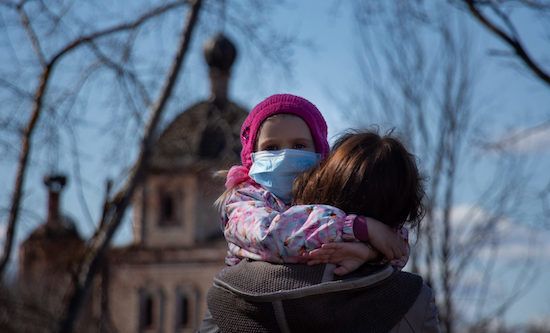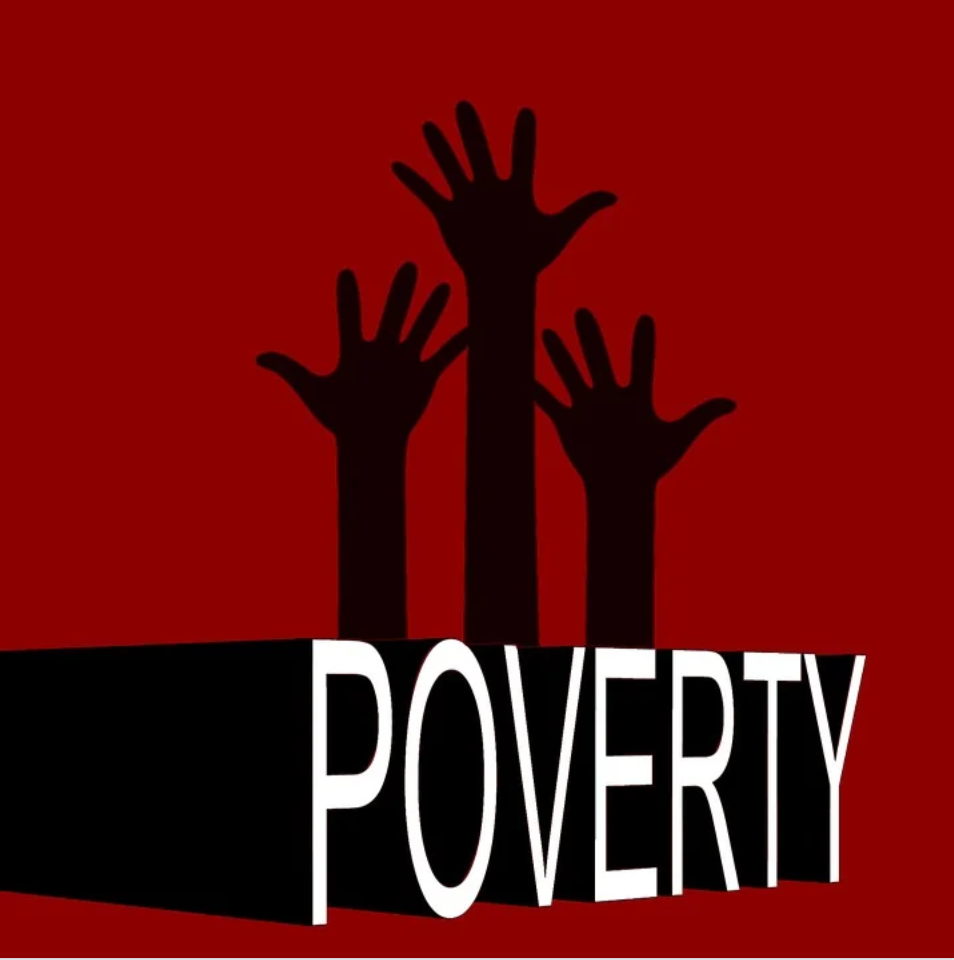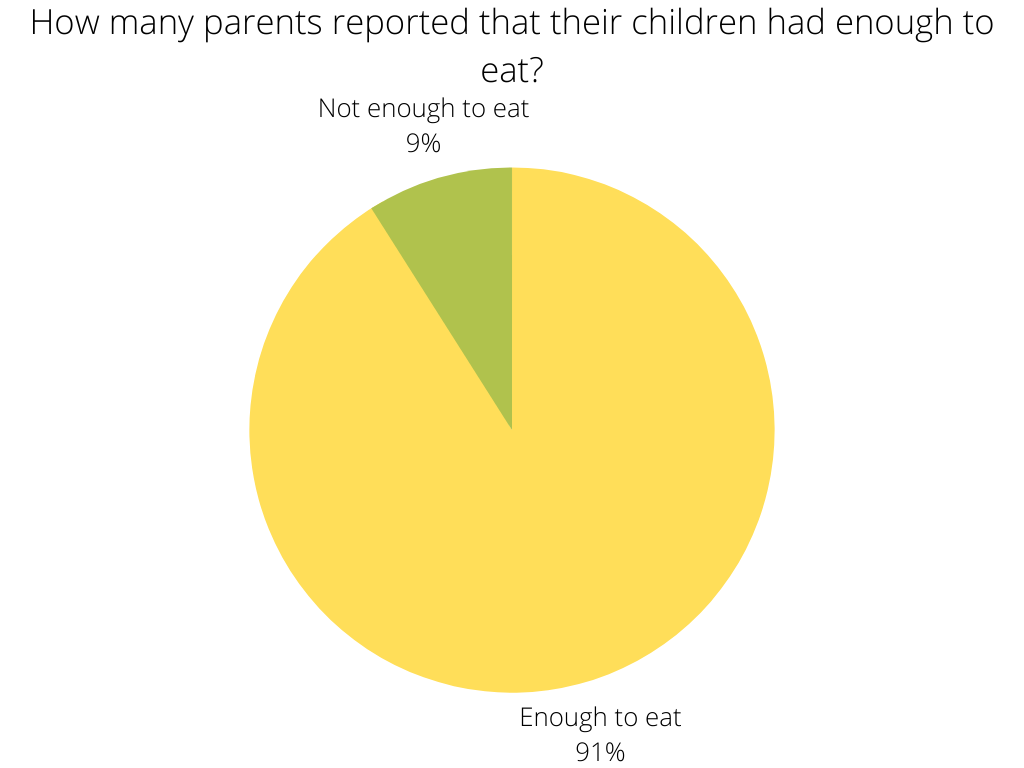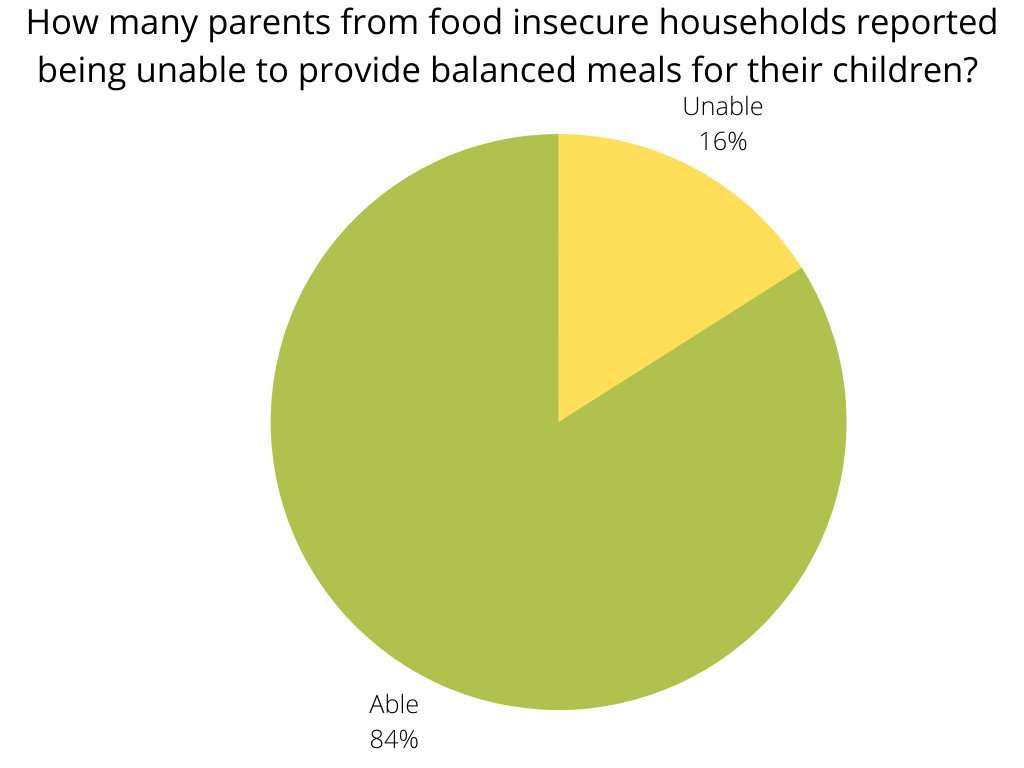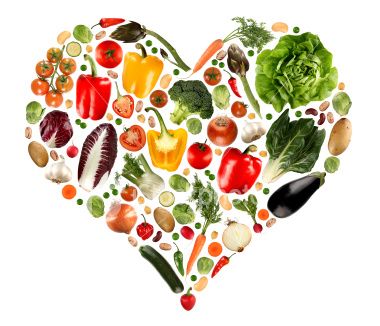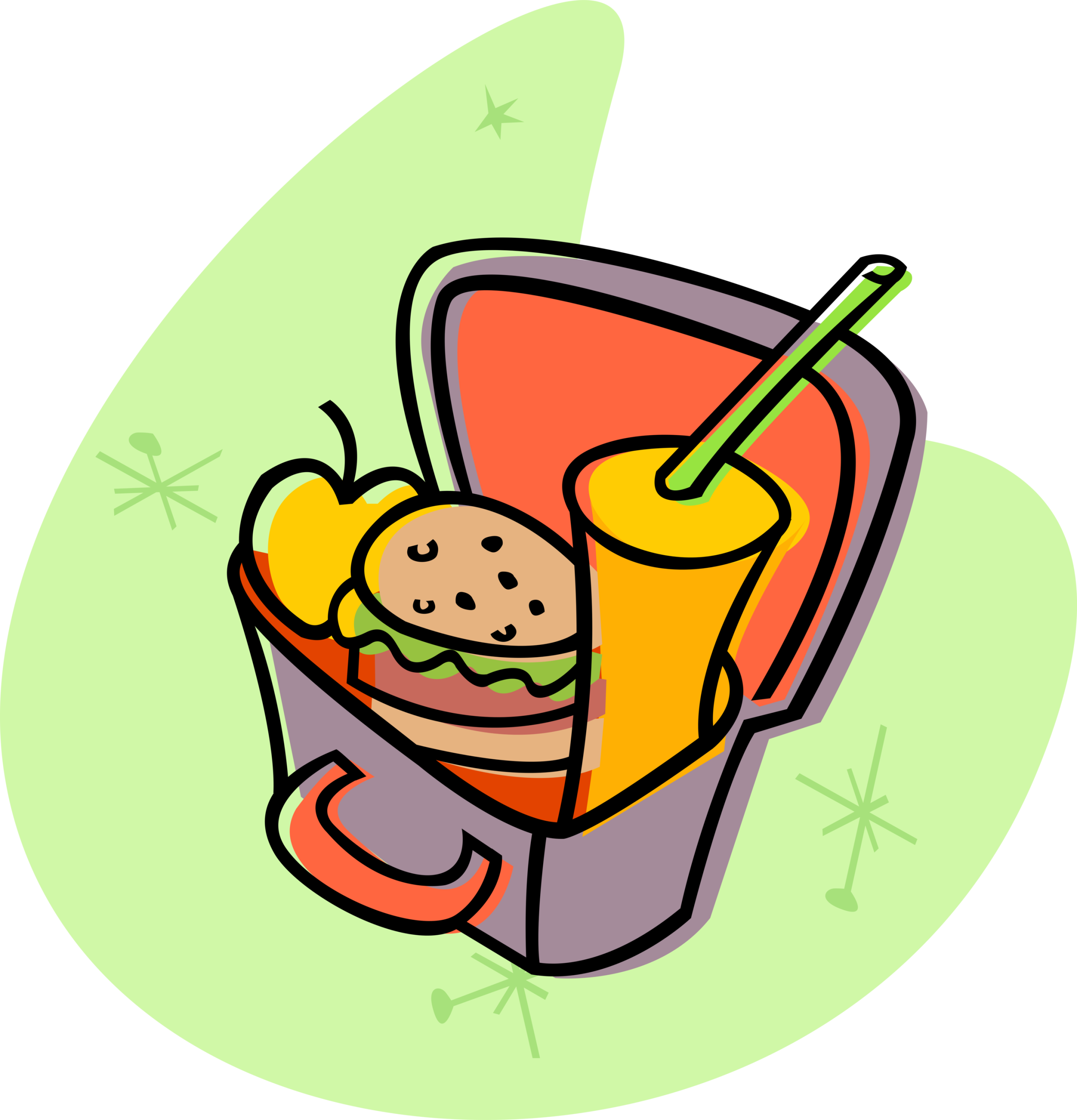Food poverty in London has rocketed to its highest since COVID-19
1.5 million adults in London have low or very low food insecurity (Greater London Authority)
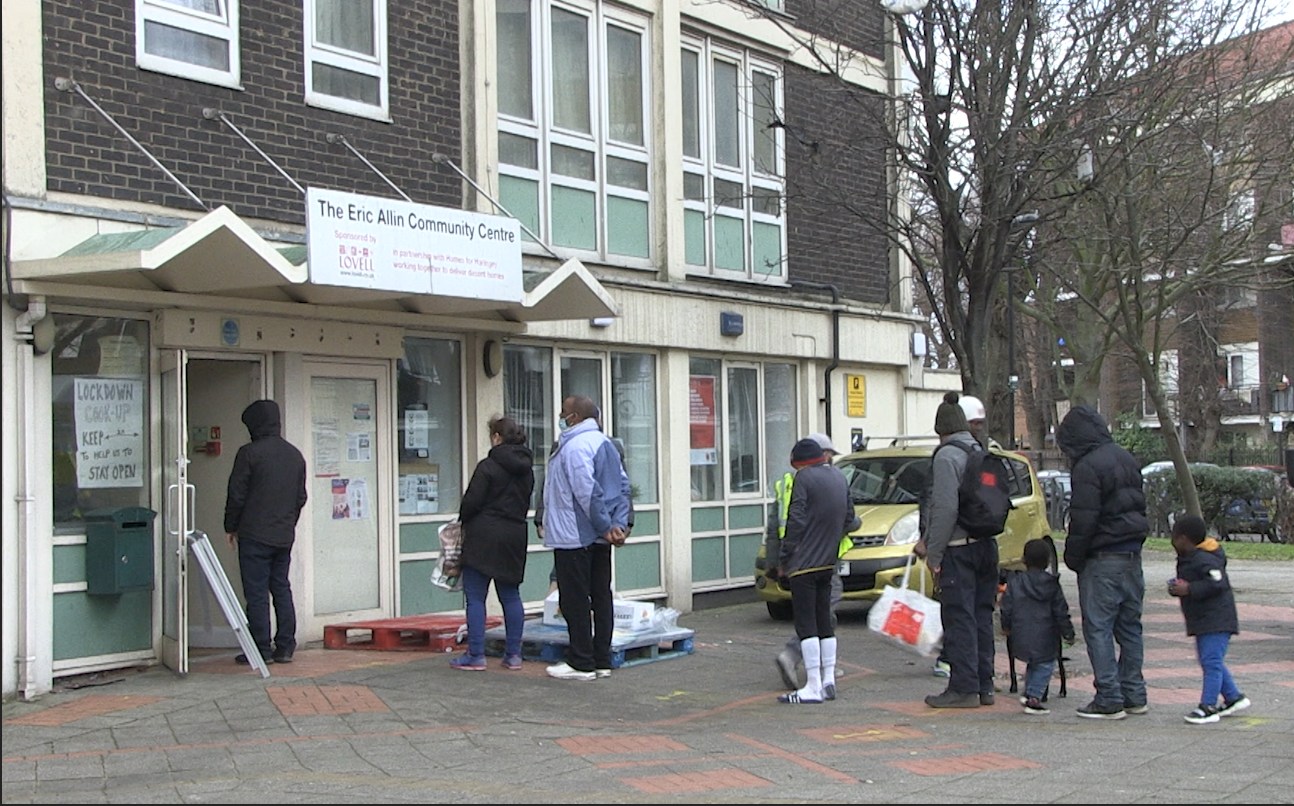
How has food poverty increased since COVID-19?

License by the Creative Commons
License by the Creative Commons
'Food poverty is the inability of individuals and households to secure an adequate and nutritious diet'
Imagine you never knew if you would be able to eat food again?
If you tried as much as you could but you couldn't get a job due to COVID-19?
Envision that you lost your job during COVID-19 and used up your savings and was left with no money or job?
Some of us are not as fortunate as others that can afford basic necessities or afford to panic buy leaving all expensive branded food on supermarket shelves.
Both food poverty and food insecurity were high prior to COVID-19 in London but a recent report by The Trussell Trust tells us that 'London has seen the largest percentage increase of 106% in the number of food parcels distributed since last year' as they have doubled since the start the of COVID-19 and lockdowns.
Due to the COVID-19 and lockdowns in London, places such as non-essential shops, restaurants, hotels had to close and people pre-COVID were advised by the central government to work from home to stop people from travelling into their workplaces. People that could not get work due to their workplace being closed were placed on furlough and some had lost their jobs due to businesses going bankrupt.
The number of deaths linked to COVID-19 was getting higher and people felt that the UK would be in a lockdown soon so people started to panic buy food in bulk from supermarkets leaving the shelves empty.
This placed a financial strain on many family households as they needed to have food on the table and many of the foods left were more of the expensive branded food such as John West tuna instead of Asda smart price branded tuna. People had to buy whatever was left as they needed to have food which meant people spent more on their supermarket shops which was expensive to afford.
Due to job losses, people had no choice but to use their savings to pay for bills, rent, food etc. People felt food insecure as they tried to be very tight with their money, 33% of adults skipped meals to save money so that their children could have food on the table.
The Food Foundation has a vision for a sustainable food system for the health and wellbeing of all.
The project manager of The Food Foundation, Zoe McIntyre explains more on the rise in food insecurity in London since COVID-19 and the future of food poverty.
Adult food poverty in London
The infographic above illustrates more adults face food insecurity in London than children.
The Mayor of London, London Assembly claim 'more than 2.3 million Londoners live below the poverty line.'
Since COVID-19, the number of people in food poverty in London is only getting higher. More Londoners are having to rely on benefits to make ends meet, however, the benefit cap is starting to bite.
Trust for London claim 'the total number of people on benefits in London increased by 44% between August 2019 and August 2020.' More people relying on benefits shows that people are struggling to afford necessities such as food and paying bills.
In a survey of Londoners introduced by the Mayor of London to measure food insecurity in London. In the survey results, it was found that '1 in 5 jobs (20%) in London pay below the London living wage.'
This explains that people do not get paid enough and during lockdowns, if they were placed on furlough pay they would only get paid 80% of this and this may not be enough for some people.
Since lockdowns and government restrictions, The Food Standards Agency have argued that there has been 'an elimination of social food sharing.' For example, on Sundays people may normally pre-Covid would go and visit their parents and have a Sunday roast together. This would allow people to save money as they would eat and share food at other places but due to Covid restrictions, by not being allowed to go to another household people would have to buy more food because they would eat in their own homes. Some people may have big families that unite together and having to buy food could result in spending more money on weekly shops due to no social food sharing taking place.
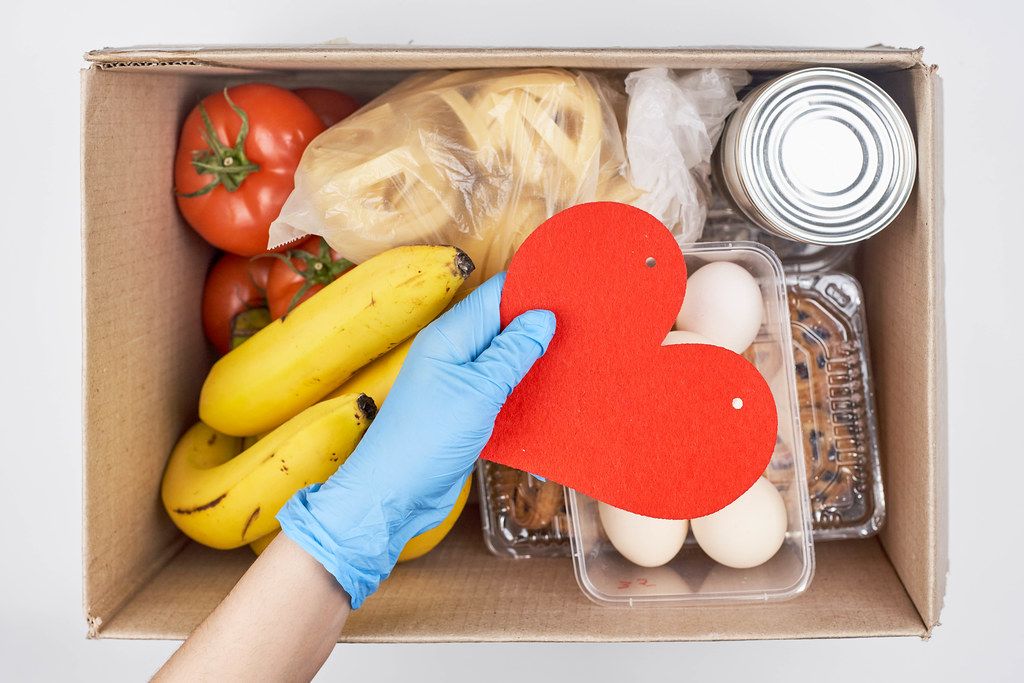
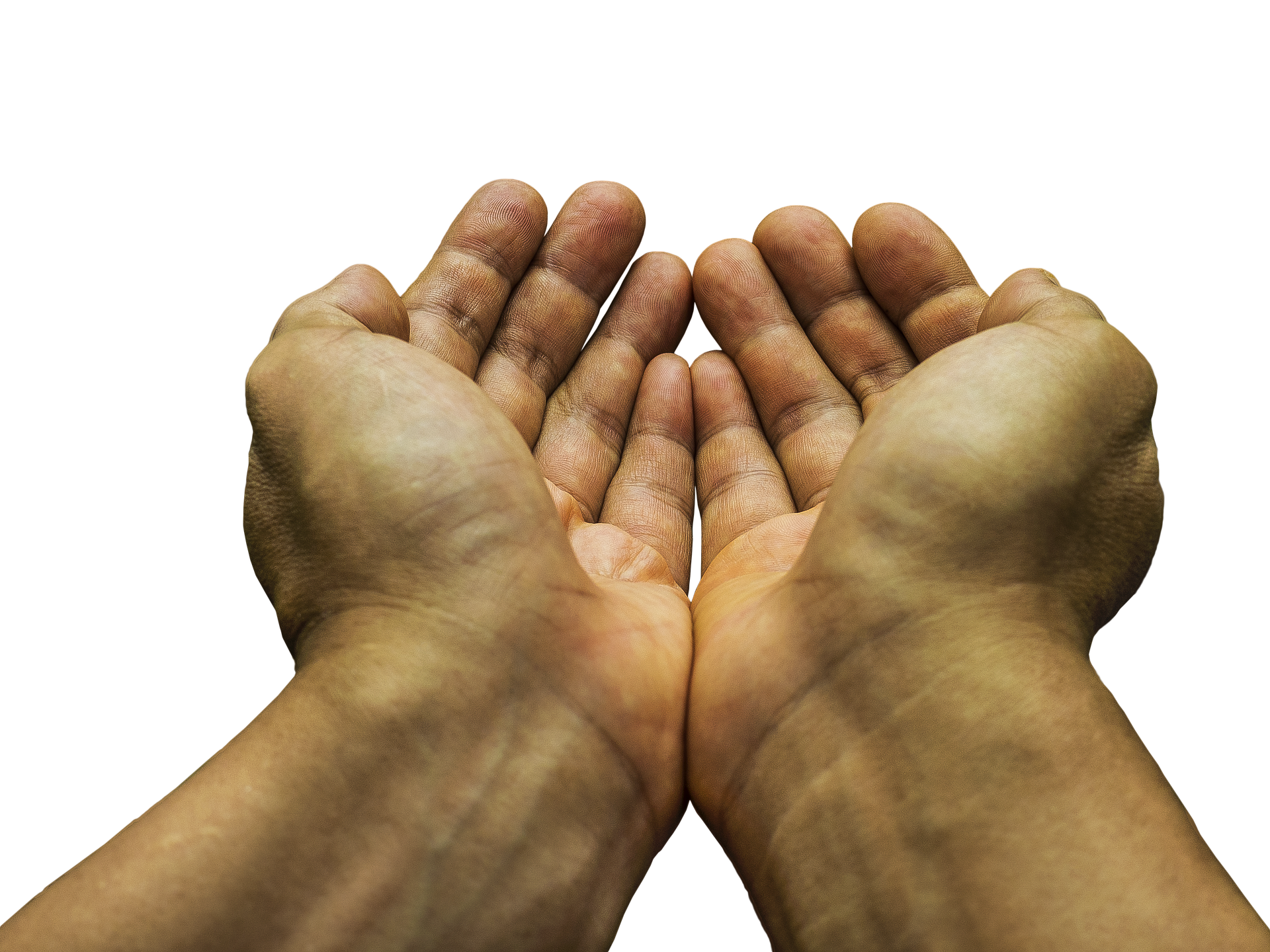
Case studies of people in food poverty
Elena (not real name)
Elena visited a food bank in Harringay which is one of the areas in London to be facing high numbers of people in poverty.
"My name is Elena and I am from Romania. I came to England in 2019, for a better life."
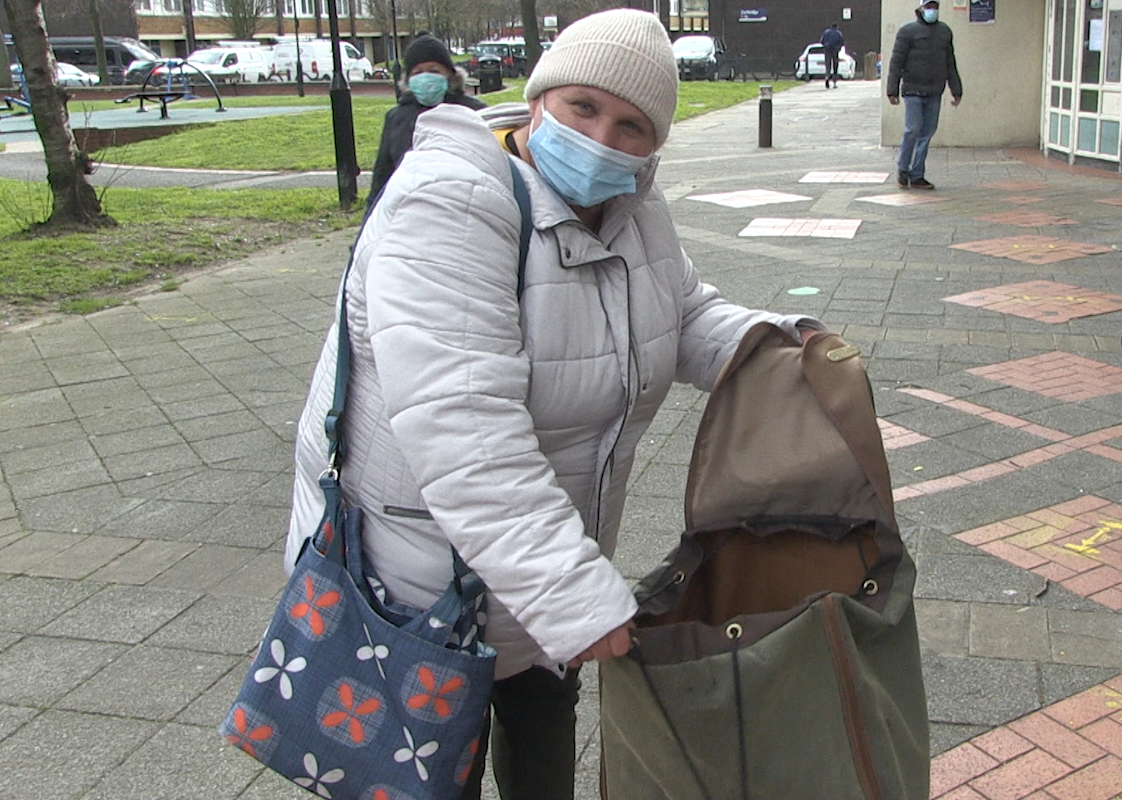
Elena
Elena
"I was very lucky to secure a temporary job so soon after coming to the UK. I was working very well as a cleaner and earned just under £10 an hour. I lived in a rented flat in Harringay with more people. My manager was very happy with me and said that after one year I can have a permanent contract and I would get paid more money. Then came COVID-19 and I lost my job. Now I am left jobless, I have no job and no money at all to feed myself. This is very bad for me as I am poor now, so I come here to get food for myself."
Silvester
"I am Silvester and I come from Romania. I do not have a home so I am currently homeless, I sleep in a park. I have no family and friends here to help me, everyone is in my country. I had jobs but they were not permanent. Since this virus things have only got worse for me because I can't find a job. I don't want to get help by trying to get benefits, I want to only help myself. If I get help they probably won't even give it to me anyway, so I don't want any help. I have been coming to this food bank in Northumberland Park for a long time and it is not far from the park I sleep in. I was afraid and ashamed at first to go to a food bank to get food but what can I do, I have to feed myself. Some days, I don't eat any food because I might not have enough for the whole week. People sometimes give me food in the park I sleep in. It is very cold and windy at night and it is not very safe in the part that I sleep in but what can I do, I have no money left and I basically have nothing."
Food bank, Community Cookup had offered Silvester a sleeping bag and coat for him to wear and keep warm at night. They also reported him to the Street Outreach program so that they could pick him up at the park he sleeps at and put him in a hotel and help him.
Jamie (not real name)
Jamie became self-employed just before the start of the pandemic. He explains how he fell into food insecurity.
"I became self-employed in my job just before Covid so I missed out on the government's self-employed income support scheme and I was not eligible to access this grant. I live with my wife and kids who are still very young. I am the main earner in my household. My wife used to work too but due to her recent surgery, she had to stop temporarily. Luckily, I had some savings in my bank account which I could use to pay the bills and pay for food. My weekly food shops went up because I had to buy more expensive branded foods and my bills especially the electricity bill went up so high due to my children being at home and using the laptop for homeschooling. Money was very tight for me and slowly the money in my savings account started to get smaller and smaller and I knew I wasn't going back to work anytime soon and so wasn't my wife. I applied for universal credit as that was the only thing that could help me get some money at least to pay my bills and put food on the table. Universal credit payments were still not enough and it resulted to me and my wife cutting our portions of food that we consumed. We still made sure our children had enough on their plates everyday. I am guilty of falling into food insecurity and I hold my hands up to being in food insecurity. I knew there were lots of food banks that had opened up in my local area due to the number of people falling into poverty in the London borough of Tower Hamlets. I have family and friends too that would be happy to help me and my family but I was embarrassed to even tell them I was struggling and I didn't want people to know because they would think things.
Luckily, in September last year (2020) my wife went back to work and started working full time. Things have got better now, but I am still self-employed but there is no work for me due to Covid. If my wife was to not go back to work I would still be in food insecurity so I do feel for some families out there because it is hard."
Why do some people tend to rely more on the government and charities?
From the case studies, it can be argued that some people tend to rely more on the government and charities more than their own family and friends.
People living in London were asked to express their views on why they think some people living in food poverty tend to rely on the government and charities to help them instead of friends and family.
"People are afraid to tell family and friends they are living in food poverty. Even your own family and friends could be judgemental and I think people are worried about being judged for living in food poverty."
Samantha Reid
"The government and charities can provide people with food supplies for as long as people need it for. You can't really ask friends and family to help you out all the time because I feel like there are only so many times you can ask for help."
Olivia Smith
"I have been lucky to not fall into food poverty but I would rather rely on the government to help me more. Due to COVID-19, I personally believe that the government has given out a lot of help and support for people living in food poverty so in my opinion, I would rely on the government for help because I would feel embarrassed to tell my friends and family."
Max Taylor
Child food poverty in London
Children can fall into food poverty too, it is not only an issue in London but in the UK too.
Since the start of COVID-19, child food poverty is still at an all time high. Children have experienced food poverty and felt food insecure about when they will eat their next proper meal.
According to The Felix Project, in the UK, '1 in 3 children (4.1 million) live in food poverty.' However, in London, as mentioned above in the infographic, The Mayors Fund for London and the Child Poverty Action Group both claim that 'London has the highest rate of child food poverty.' Also as mentioned in the infographic, The Mayor's Fund for London (The Greater London Assembly) has said '1 in 6 children face food insecurity. This is 17% of children in the capital.'
'Approximately 400,000 children in London under the age of 16 are struggling to afford or access enough food'
Child food poverty in London
In the survey of Londoners previously mentioned above, 9% of parents reported that their children did not always have enough to eat. Although this is not too high, it can interpret that these children could face food insecurity as they were not full and were still hungry.
16% of children would miss out on eating the correct foods to gain vitamins and minerals needed for their body as parents could not provide a meal that was a balanced diet. The lack of correct nutrients could mean that children would lack continued growth and development. This could get worse as food prices may go up as the UK has now left the European Union.
Due to the COVID-19, in the first lockdown which started in March 2020, schools were shut due to the rising numbers of Covid cases and deaths. Some children are eligible for free school meals as their parents may be on a low income and for some children school dinners was the only proper meal they used to eat throughout the day due to parents not being able to afford proper meals for their children.
This put lots of pressure on parents to feed their children food at home and parents would face food insecurity and starve themselves so they could put food on the table for their children. As schools were closed, children were eating lunch from home which meant children ate more meals at home than normal as lunch was normally consumed at school.
From researching about school breakfast clubs and after school clubs for parents who are at work during the time school opens and closes, it was found that during covid due to schools being closed, things like breakfast clubs were not operating and it can be argued that this does not help the situation of children in food poverty as they are missing breakfast that would normally be provided in school. With children being at home, parents also need to provide childcare and many people were told to work from home and this could be seen as a burden as parents had to deal with children at home and also working from home. With, school closures, parents would need more money to feed their children as children were now eating breakfast, lunch and dinner at home.
Kitchen Social
The Mayor's Fund in 2016 identified the issue of food insecurity in children and in 2017, Kitchen Social was launched to help children and young people during the school holidays by providing them healthy food and social development activities.
Kitchen Social has now changed the way that they operate since COVID-19 but are still supporting children to help improve child food poverty and insecurity.
Food Banks
The infographic above shows just how much food, The Trussell Trust has donated to people in food poverty and insecurity in London. Between 2020/2021 they have donated 421,426 food parcels just through the Trussell Trust network. It is clearly evident that demand has gone up in London and COVID-19 is one of the factors as to why more people have fallen into the poverty of food.
Also, many independent food banks have got busier since the start of the COVID-19 and new independent food banks have risen too since the first lockdown in March 2020 (last year).
The infographic above shows that Harringay was one of the top boroughs facing hunger.
An indepedent food bank, called Community Cook Up based in Northumberland Park has been working hard on helping people in food poverty.
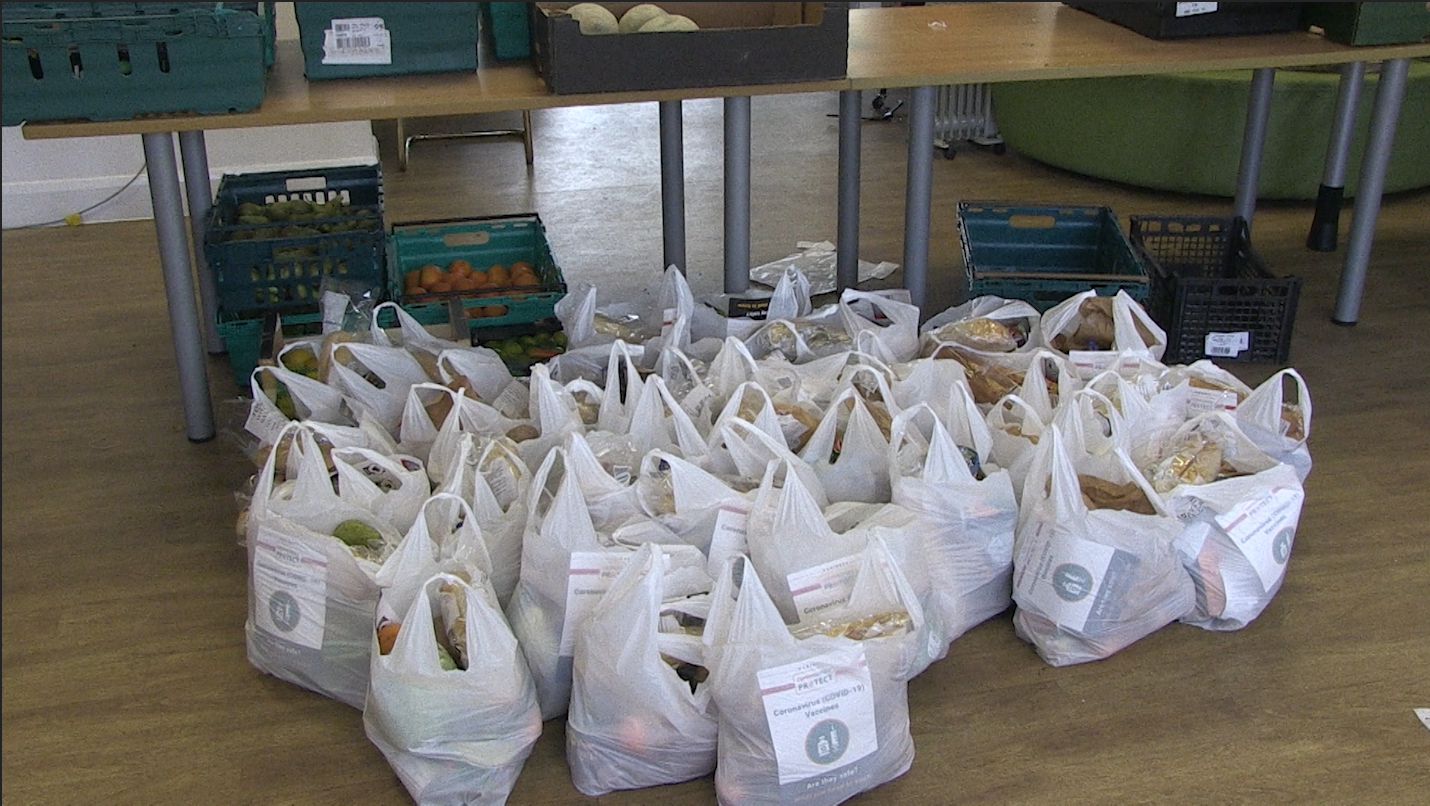
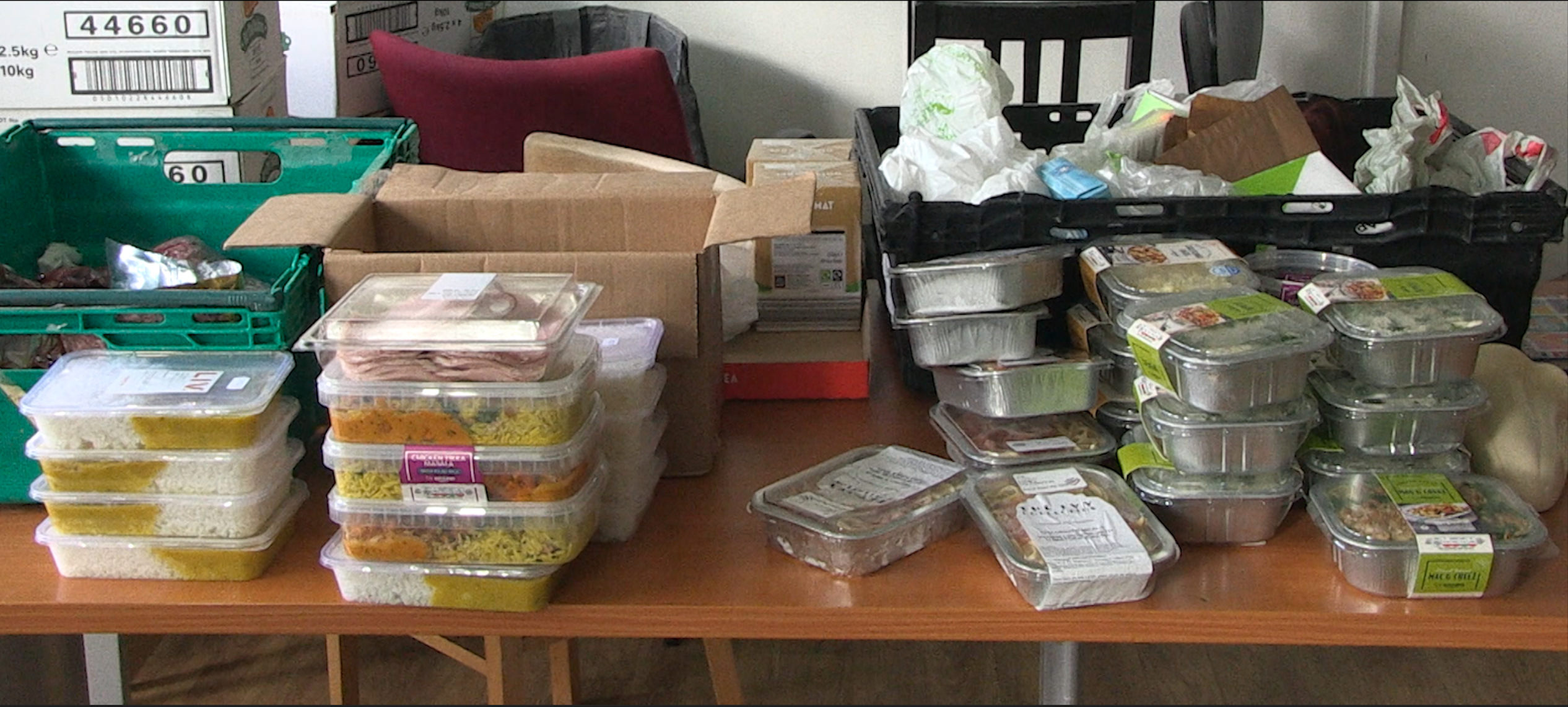
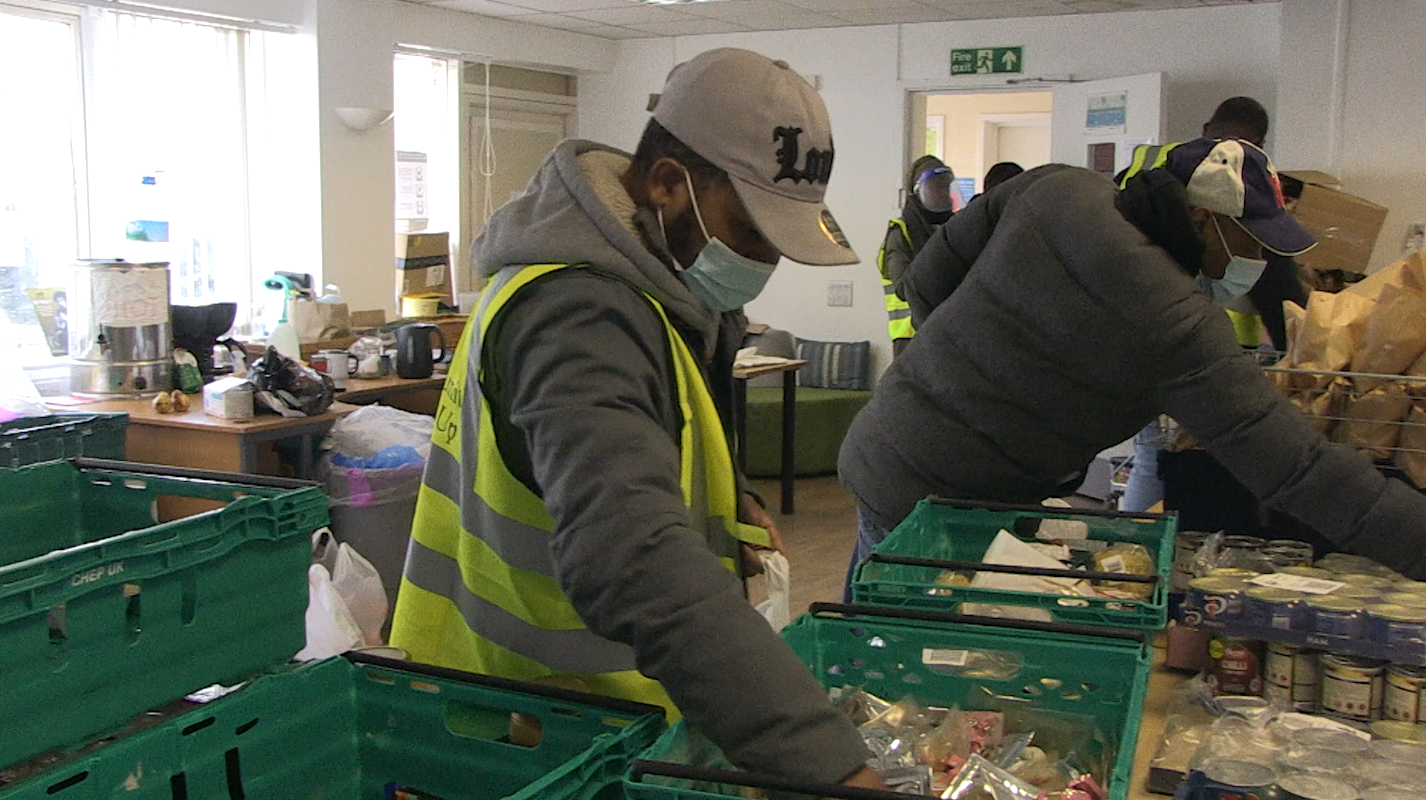
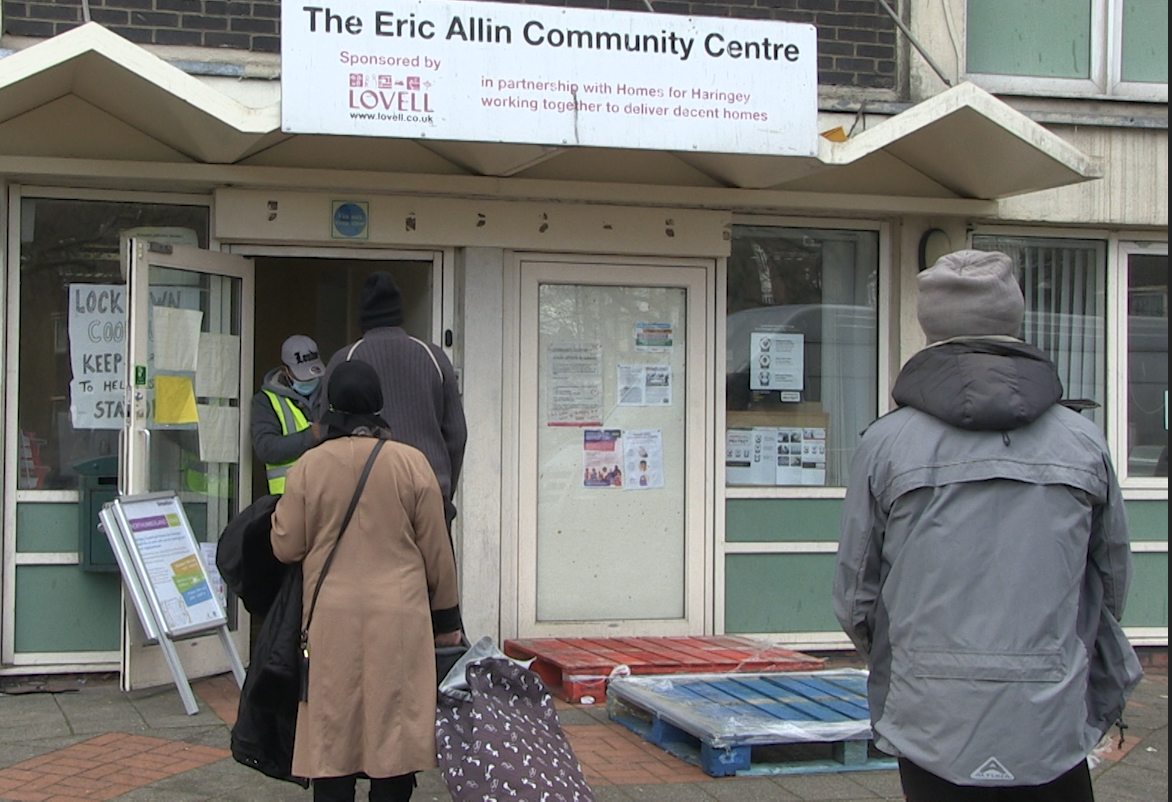
Soup Kitchens
Soup kitchens in London have also been working very hard throughout COVID-19 to feed the homeless and the needy that are in food poverty.
Soup kitchens have been offering people on the streets hot food, clothes and essential products such as sanitary products for the people in need of these things.
A soup kitchen in the London borough of Newham called One Third Soup Kitchen is run every Saturday, outside the Stratford Centre. They hand out hot food that gets donated to the soup kitchen. They have over 100 containers of hot food available every weekend. This soup kitchen was running before COVID-19 and has been running for a few years outside the Stratford Centre. There is a high demand at the soup kitchen as people are aware that hot food will be available on Saturday. At One Third soup kitchen, people in food poverty and in need of food can visit the soup kitchen without any sort of voucher to claim hot food.
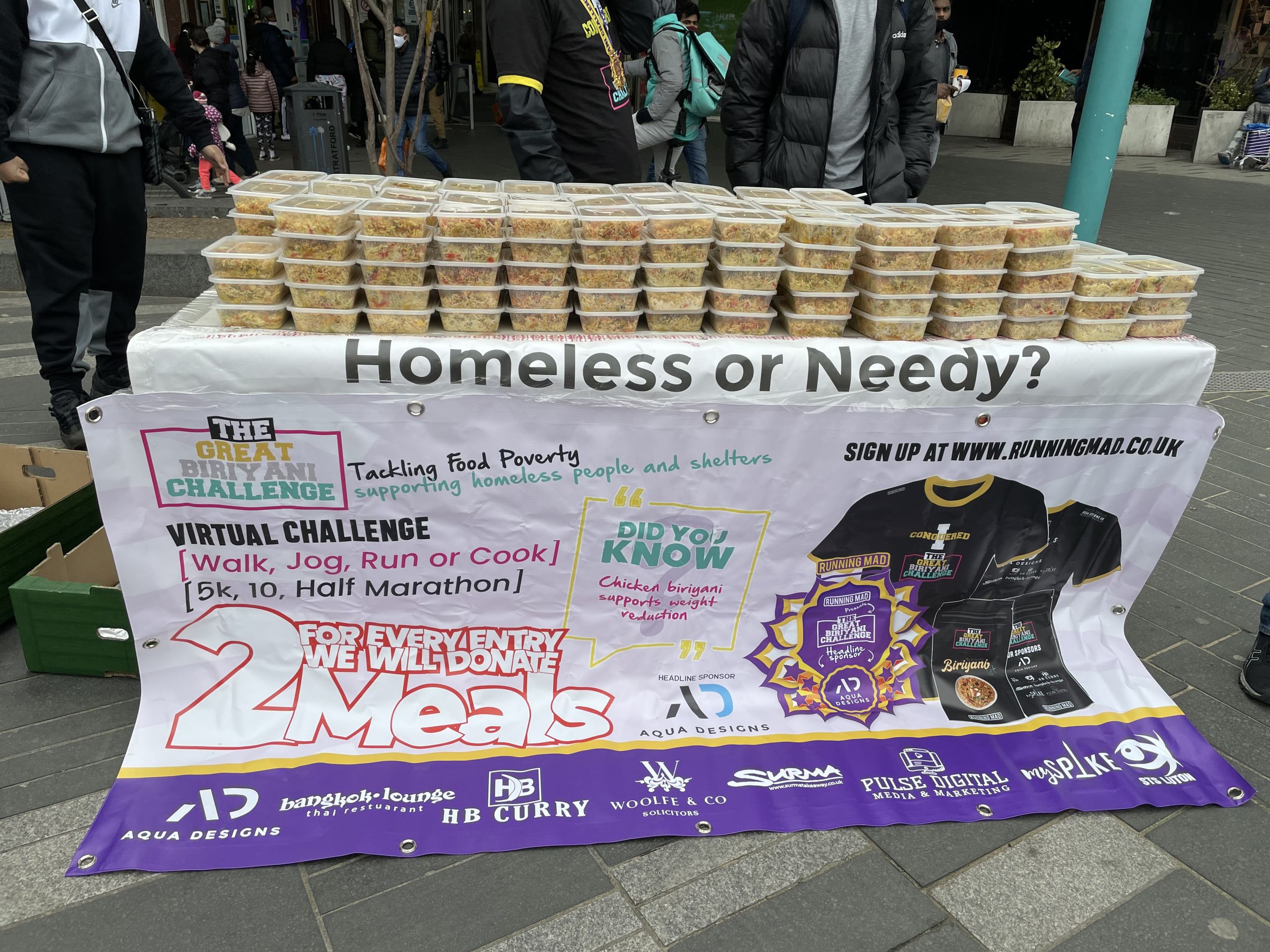
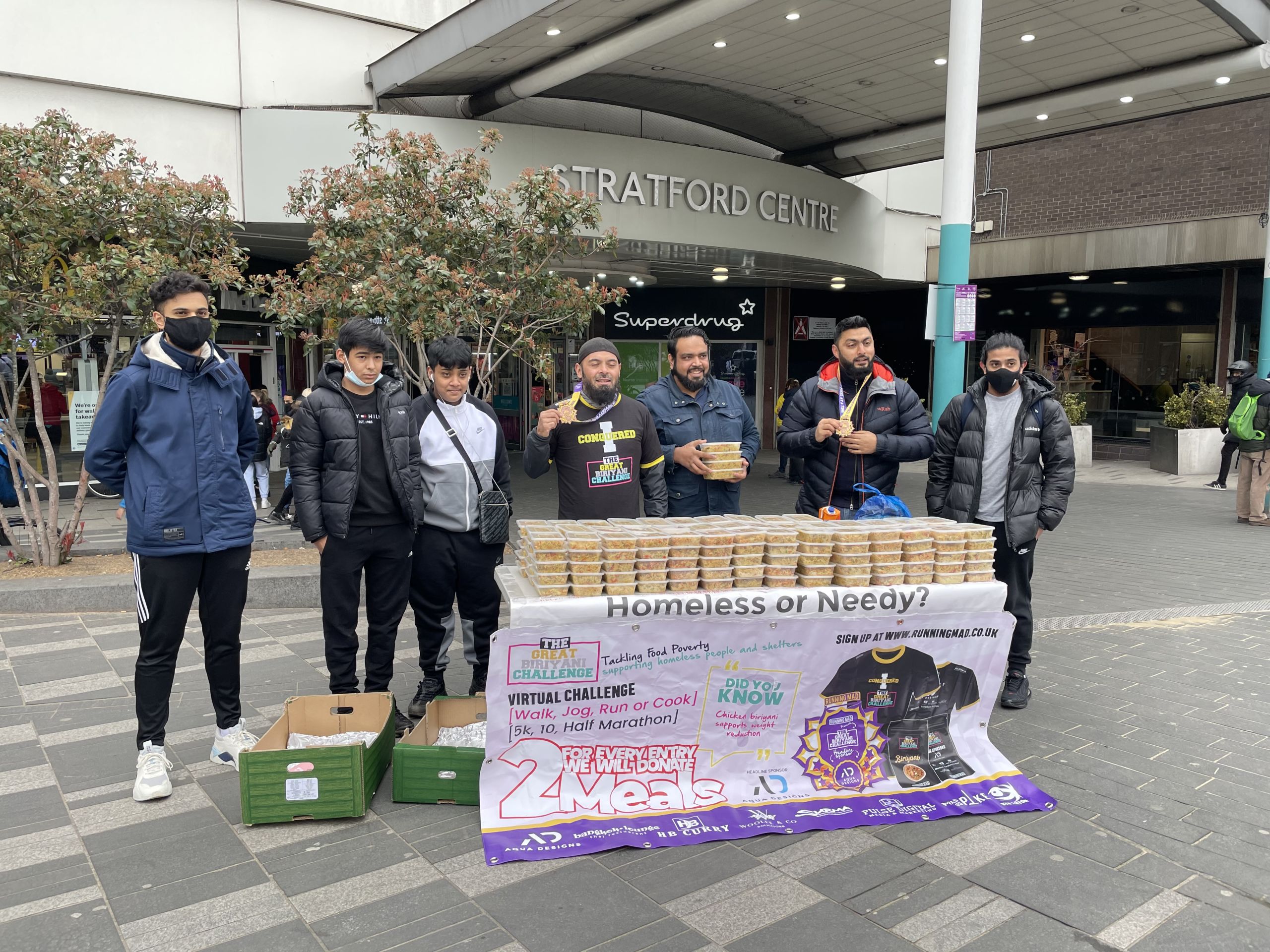
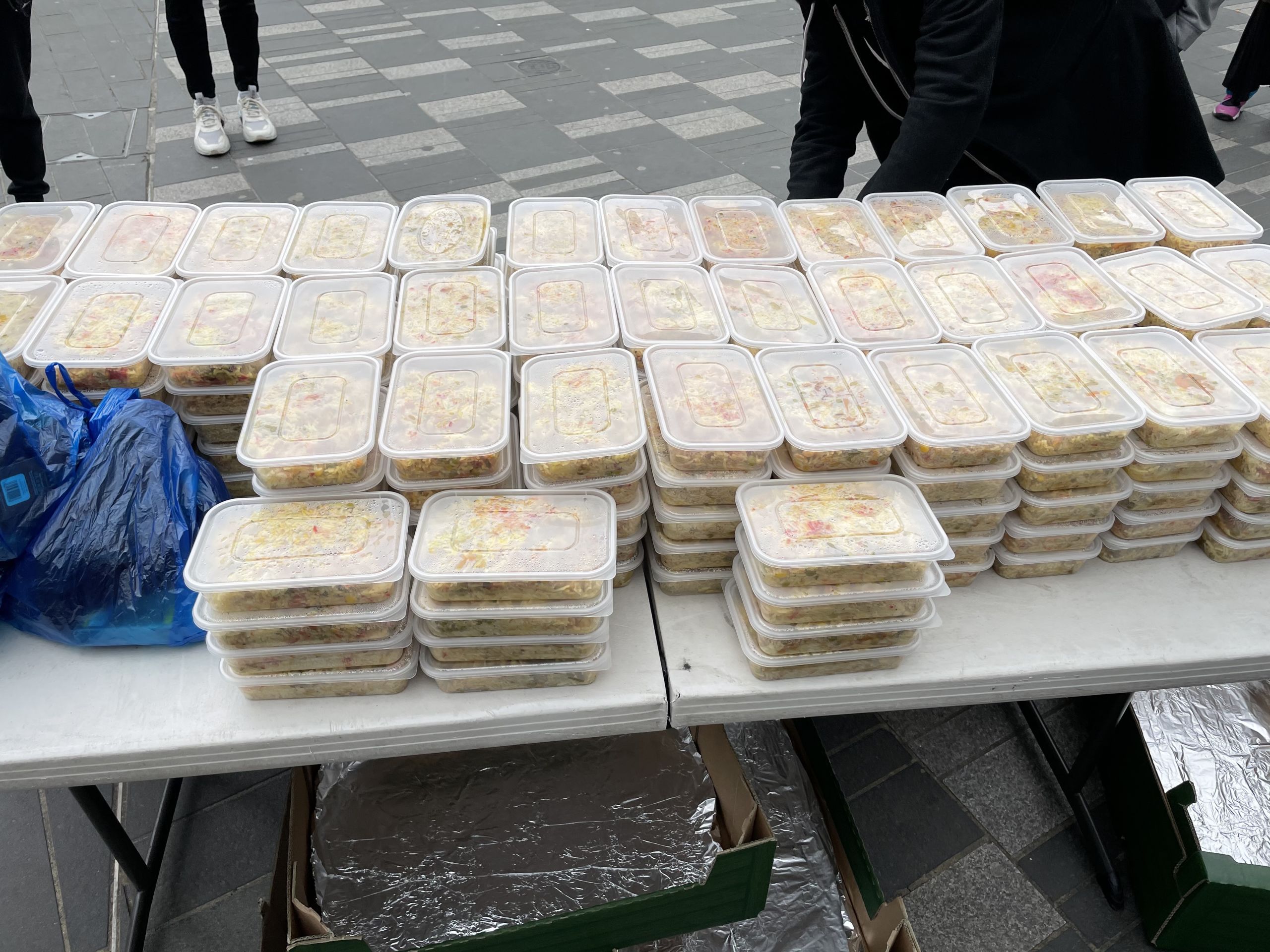
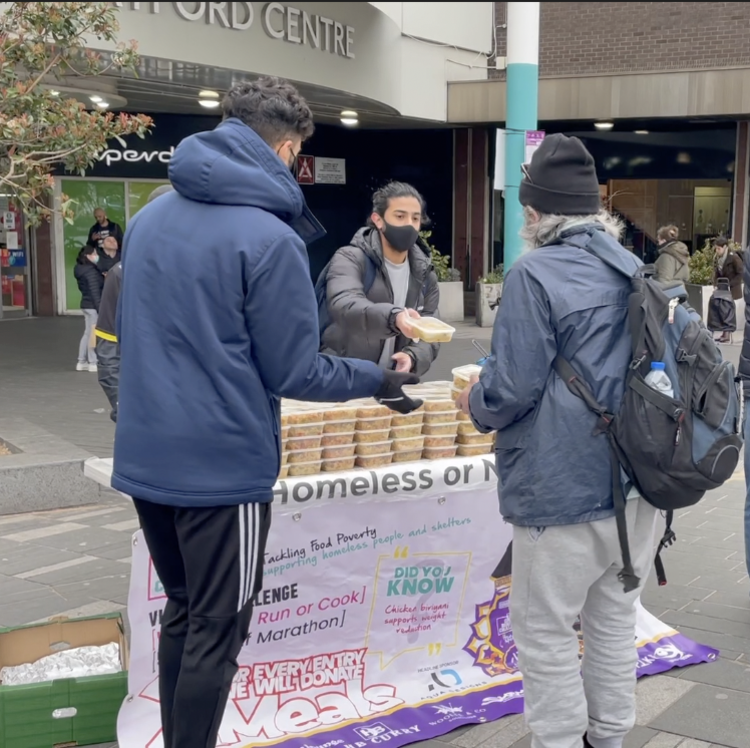
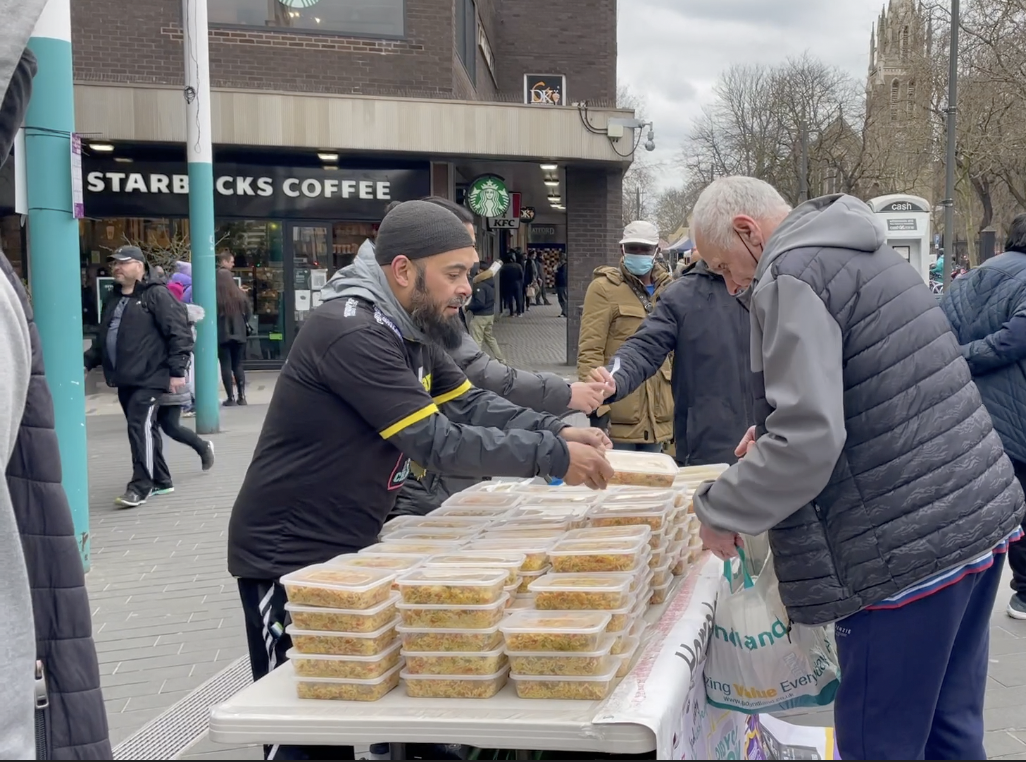
How are councils in London helping their residents who are in food poverty?
As mentioned in the infographic above, Tower Hamlets is one of the top London boroughs facing hunger along with Hackney, Newham, Harringay, Islington and Brent. Tower Hamlets is one of the top boroughs in London facing hunger. This can interpret that people may not just be facing food insecurity but may also be facing poverty where they have no food and cannot afford basic necessities.
Since COVID-19, councils and the government have given out lots of support to help people that cannot go out to get food shopping due to shielding as they are in the vulnerable category and can't go out shopping because they risk catching the virus. These people got help from the councils and government by getting food packs delivered to their houses to allow them to have food at home to consume. Some of these people were facing food insecurity already so the council and government did offer them help by people meeting the criteria for food packs to be delivered to them.
However, some people still faced food poverty and insecurity as they couldn't get food packs delivered.
Councils in London have all been supporting their residents in food poverty in different ways. Southwark Councillor, Barrie Hargrove, Newham Councillor, Ayesha Chowdhury and Tower Hamlets Councillor Andrew Wood all spoke about what support the council has been providing to their residents in food poverty since the start of COVID-19.
Other Councils in London are also helping their residents who are in food poverty in many ways. Barking and Dagenham council have a Community Food Club where they can get shopping worth £20 a week for free during COVID-19. The Community Food Club in Barking and Dagenham also provides people help and support in managing their finances, employment and housing.
In the first four weeks since the first lockdown began in March 2020, Brent Council delivered 3,500 doorstep deliveries of food and other essentials.
Hammersmith and Fulham council partnered with the Olympia London exhibition to help support their residents in need of food and they are delivering 1000 food parcels a week to help the residents that require food the most.

Will there be an end to food poverty?
The real question that lies is, will food poverty in London end?
Food poverty is not new and did not start when COVID-19 emerged, in fact, food poverty has been present in London for a very long time.
It can be argued that food poverty could possibly decline in numbers after lockdowns end in London as people can get new jobs or go back to work.
For some, this may not be the case as finding a job can be difficult and can take a long time.
Furlough pay ends in September this year, which could mean that people could lose their jobs closer to this time and more people after September this year can fall into food poverty not just in London but in the UK.
The manager of Earlsfield Food Bank, Charlotte White says "The food bank is very busy and demand has rocketed. Even though lockdown is coming to an end, I don't think things will change in food banks because there are still people in need as so many people are still losing their jobs, coming out of furlough. People are recovering from health issues as well, so there are many more reasons now as to why people will need a food bank more than ever."
The number of people falling into food poverty in London can be seen as unpredictable. We may or may not have anymore lockdowns.
If we are to have more lockdowns due to COVID-19, this can result in businesses closing permanently and people losing their income and jobs and even more people falling into food poverty.

